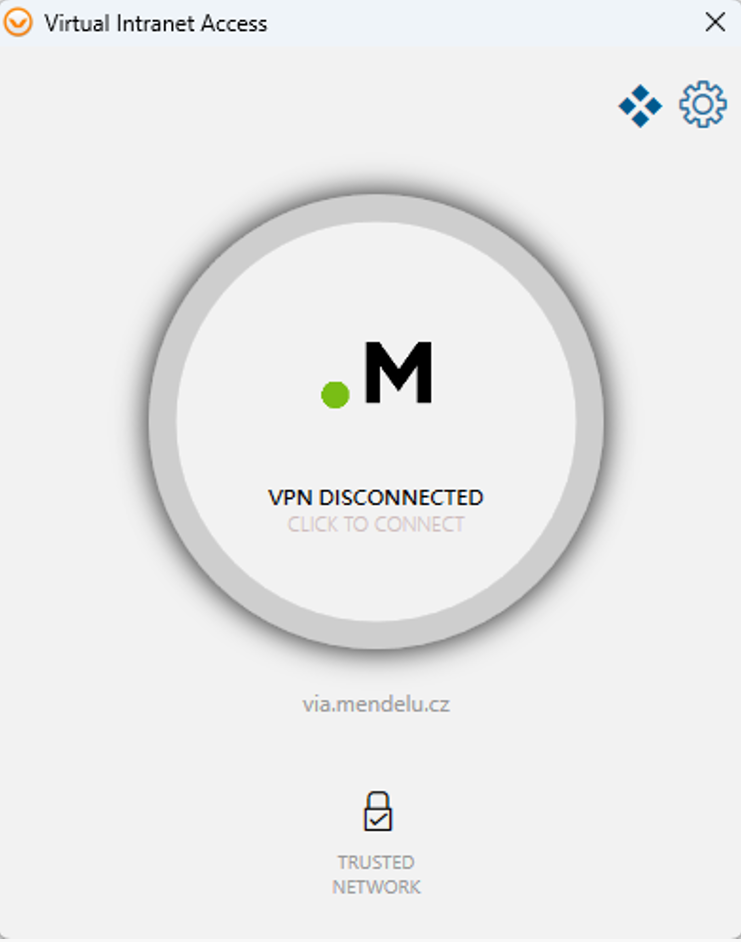Virtual Private Network
MENDELU Virtual Private Network (VPN) is designed for employees and students who need to work remotely with applications, network, and server services available only within the university network space. The main purpose of VPN is access to electronic information resources and access to the same range of services as on stations in the university network. This can be utilized, for example, by managerial and administrative staff for accessing the SAP economic system, remote printing options, and more. VPN is a means of connecting computers at different locations on the Internet into a single virtual computer network. Even though computers may be in completely physically independent networks in different parts of the world, through a virtual private network, they can communicate with each other as if they were on a single network segment.
Through VPN, it is possible to ensure, for example, the connection of laptops anywhere on the Internet to the internal university network. The connection utilizes a VPN server, which has access to the Internet and the internal university network, and a VPN client, which connects to the server over the Internet and through it to the internal university network. The VPN server essentially functions as a network gateway. Access is protected by a username, password, and encrypted transmission.
We use the HPE Virtual Intranet (VIA) client for access -> The Virtual Intranet Access (VIA) client provides secure remote network connections for Android, Apple iOS, Mac OS X, Linux, and Windows devices.
